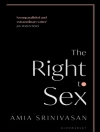First treatment of a conspicuously East German feature in today’s German literature, that of autobiographical writing — and rewriting.
A striking feature of today’s German literature is the survival of an East German subculture characterized by its authors’ self-reflexive concern with their own lives, not only in texts labeled as autobiography but also those in the more ambiguous territory of what Christa Wolf has called ‘subjective authenticity.’ Dennis Tate provides the first detailed account of this phenomenon: its origins in the 1930s’ exile debates, its evolution during the GDR’s lifespan, and its manifestations in the work of five East German authors still widely read today: Brigitte Reimann, Franz Fühmann, Stefan Heym, Günter de Bruyn, and Christa Wolf. Tate shows how the preoccupation with self arose fromthe unusually turbulent circumstances in which this generation has lived. Having succumbed early to the temptation to simplify their life stories for misguided educational purposes, these authors have repeatedly reconstructed their personal and political identities as their perspectives on the past have shifted. Tate shows the importance of viewing their autobiographical writing as a multilayered historical process, exposing problems with canonical accounts of East German literature and enabling texts published under GDR censorship to be properly appreciated for the first time.
Dennis Tate is Professor of German Studies at the University of Bath, UK.
İçerik tablosu
Introduction: East German Autobiographical Prose: Challenging Conventional Genre Distinctions
Autobiographical Writing in the East German Context and Beyond
Brigitte Reimann: The Constraints of First-Person Fiction
Franz Fühmann: The Deconstruction of an ‘Exemplary’ Biography
Stefan Heym: Strategies of Self-Concealment in Fictional and Autobiographical Mode
Günter de Bruyn: From the ‘Lies’ of Fiction to the ‘Truth’ of Autobiography?
Christa Wolf: ‘Subjective Authenticity’ in Practice: An Evolving Autobiographical Project
Bibliography
Index












